"We could not separate what was happening in the corridors of our financial institutions from what was happening on factory floors and around kitchen tables," said US President Barack Obama while addressing a gathering in Washington DC's Federal Hall.
Excerpts from Obama's speech on financial rescue and reform, that, he delivered on the eve of the 1st anniversary of the collapse of the Lehman Brothers.
Obama on the financial crisis that gripped the US
As investors and pension-holders watched with dread and dismay, and after a series of emergency meetings often conducted in the dead of the night, several of the world's largest and oldest financial institutions had fallen, either bankrupt, bought, or bailed out: Lehman Brothers, Merrill Lynch, AIG, Washington Mutual, Wachovia.
A week before this began, Fannie Mae and Freddie Mac had been taken over by the government. Other large firms teetered on the brink of insolvency. Credit markets froze as banks refused to lend not only to families and businesses but to one another. Five trillion dollars of Americans' household wealth evaporated in the span of just three months.
The markets had fallen sharply; credit was not flowing. It was feared that the largest banks - those that remained standing - had too little capital and far too much exposure to risky loans. And the consequences had spread far beyond the streets of lower Manhattan.
This was no longer just a financial crisis; it had become a full-blown economic crisis, with home prices sinking, businesses struggling to access affordable credit, and the economy shedding an average of 700,000 jobs each month.
We could not separate what was happening in the corridors of our financial institutions from what was happening on factory floors and around kitchen tables. Home foreclosures linked those who took out home loans and those who repackaged those loans as securities.
A lack of access to affordable credit threatened the health of large firms and small businesses, as well as all those whose jobs depended on them. And a weakened financial system weakened the broader economy, which in turn further weakened the financial system.
How Obama plans to salvage world economy
Obama on the recovery plan
The only way to address successfully any of these challenges was to address them together.
By opening and examining the books of large financial firms, we helped restore the availability of two things that had been in short supply: capital and confidence. By taking aggressive and innovative steps in credit markets, we spurred lending not just to banks, but to folks looking to buy homes or cars, take out student loans, or finance small businesses.
Our home ownership plan has helped responsible homeowners refinance to stem the tide of lost homes and lost home values.
And the recovery plan is providing help to the unemployed and tax relief for working families, all while spurring consumer spending. It's prevented layoffs of tens of thousands of teachers, police officers, and other essential public servants.
And thousands of recovery projects are underway all across America, putting people to work building wind turbines and solar panels, renovating schools and hospitals, and repairing our nation's roads and bridges.
How Obama plans to salvage world economy
Image: Wall Street, New York.A word of caution from Obama
After months in which public dollars were flowing into our financial system, we are finally beginning to see money flowing back to the taxpayers. This doesn't mean taxpayers will escape the worst financial crisis in decades unscathed. But banks have repaid more than $70 billion, and in those cases where the government's stake has been sold completely, taxpayers have actually earned a 17-percent return on their investment.
While full recovery of the financial system will take a great deal more time and work, the growing stability resulting from these interventions means we are beginning to return to normalcy. But what I want to emphasise is this: normalcy cannot lead to complacency.
Unfortunately, there are some in the financial industry who are misreading this moment. Instead of learning the lessons of Lehman and the crisis from which we are still recovering, they are choosing to ignore them. They do so not just at their own peril, but at our nation's.
So I want them to hear my words: We will not go back to the days of reckless behavior and unchecked excess at the heart of this crisis, where too many were motivated only by the appetite for quick kills and bloated bonuses.
Those on Wall Street cannot resume taking risks without regard for consequences, and expect that next time, American taxpayers will be there to break their fall.
How Obama plans to salvage world economy
Image: Capitol Hill, Washington DC.Obama's action plan
We are calling on the financial industry to join us in a constructive effort to update the rules and regulatory structure to meet the challenges of this new century. We have sought ideas and inputs from industry leaders, policy experts, academics, consumer advocates, and the broader public. And we've worked closely with leaders in the Senate and House.
Taken together, we are proposing the most ambitious overhaul of the financial system since the Great Depression.
But I want to emphasise that these reforms are rooted in a simple principle: we ought to set clear rules of the road that promote transparency and accountability. That's how we'll make certain that markets foster responsibility, not recklessness, and reward those who compete honestly and vigorously within the system, instead of those who try to game the system.
First, we're proposing new rules to protect consumers and a new Consumer Financial Protection Agency to enforce those rules. This crisis was not just the result of decisions made by the mightiest of financial firms. It was also the result of decisions made by ordinary Americans. While there were many who took out loans they knew they couldn't afford, there were also millions who signed contracts they didn't fully understand.
This is in part because there is no single agency charged with making sure it doesn't happen. That is what we'll change.
How Obama plans to salvage world economy
Obama emphasises on 'accountability'
Second, we've got to close the loopholes that were at the heart of the crisis.
Under existing rules, some companies can actually shop for the regulator of their choice and others, like hedge funds, can operate outside of the regulatory system altogether.
Now, one of the main reasons this crisis could take place is that many agencies and regulators were responsible for oversight of individual financial firms and their subsidiaries, but no one was responsible for protecting the whole system. In other words, regulators were charged with seeing the trees, but not the forest.
We'll create clear accountability and responsibility for regulating large financial firms that pose a systemic risk. The only way to avoid a crisis of this magnitude is to ensure that large firms can't take risks that threaten our entire financial system, and to make sure they have the resources to weather even the worst of economic storms.
Finally, we need to close the gaps that exist not just within this country but among countries. The United States is leading a coordinated response to promote recovery and to restore prosperity among both the world's largest economies and the world's fastest growing economies.
How Obama plans to salvage world economy
Obama on protectionism
A healthy economy in the 21st Century also depends upon our ability to buy and sell goods in markets across the globe. And make no mistake, this administration is committed to pursuing expanded trade and new trade agreements. It is absolutely essential to our economic future.
But no trading system will work if we fail to enforce our trade agreements. So when, as happened this weekend, we invoke provisions of existing agreements, we do so not to be provocative or to promote self-defeating protectionism. We do so because enforcing trade agreements is part and parcel of maintaining an open and free trading system.
And just as we have to live up to our responsibilities on trade, we have to live up to our responsibilities on financial reform as well.
I've always been a strong believer in the power of the free market. I believe that jobs are best created not by government, but by businesses and entrepreneurs willing to take a risk on a good idea.
How Obama plans to salvage world economy
Image: Obama with former US President George W Bush.Obama slams Bush administration
What took place one year ago was not merely a failure of regulation or legislation; it was not merely a failure of oversight or foresight.
It was a failure of responsibility that allowed Washington to become a place where problems - including structural problems in our financial system - were ignored rather than solved.
It was a failure of responsibility that led homebuyers and derivative traders alike to take reckless risks they couldn't afford. It was a collective failure of responsibility in Washington, on Wall Street, and across America that led to the near-collapse of our financial system one year ago.
Restoring a willingness to take responsibility - even when it is hard - is at the heart of what we must do. Here on Wall Street, you have a responsibility. The reforms I've laid out will pass and these changes will become law. But one of the most important ways to rebuild the system stronger than before is to rebuild trust stronger than before - and you do not have to wait for a new law to do that.
The fact is, many of the firms that are now returning to prosperity owe a debt to the American people. Though they were not the cause of the crisis, American taxpayers through their government took extraordinary action to stabilise the financial industry.
They shouldered the burden of the bailout and they are still bearing the burden of the fallout - in lost jobs, lost homes and lost opportunities.
How Obama plans to salvage world economy
Image: The Statue of Liberty.Obama's message to the world
Just as we are asking the private sector to think about the long term, Washington must as well. When my administration came through the door, we not only faced a financial crisis and costly recession, we also found waiting a trillion-dollar deficit.
Yes, we have had to take extraordinary action in the wake of an extraordinary economic crisis. But I am committed to putting this nation on a sound and secure fiscal footing.
That's why we're pushing to restore pay-as-you-go rules, because I will not go along with the old Washington ways which said it was OK to pass spending bills and tax cuts without a plan to pay for it.
That's why we're cutting programs that don't work or are out of date. And that's why I've insisted that health insurance reform not add a dime to the deficit, now or in the future.
There are those who would suggest that we must choose between markets unfettered by even the most modest of regulations. But if there is one lesson we can learn from last year, it is that this is a false choice. Common-sense rules of the road do not hinder the markets but make them stronger. Indeed, they are essential to ensuring that our markets function, and function fairly and freely.
One year ago, we saw in stark relief how markets can err. One year later, it is incumbent on us to put in place those reforms that will prevent this kind of crisis from ever happening again.

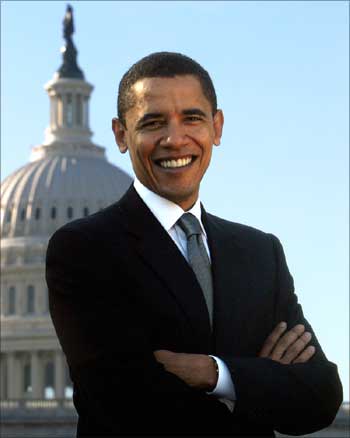
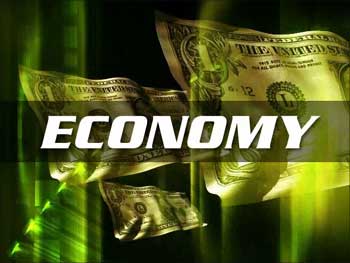
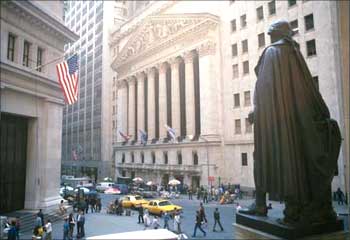
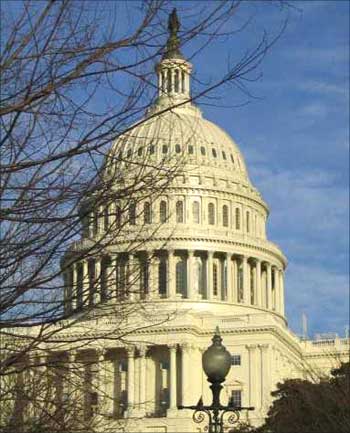
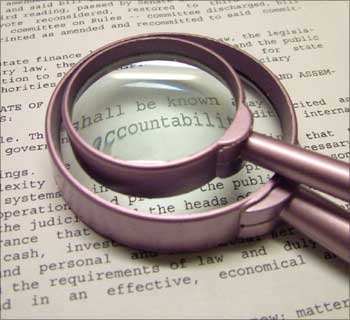

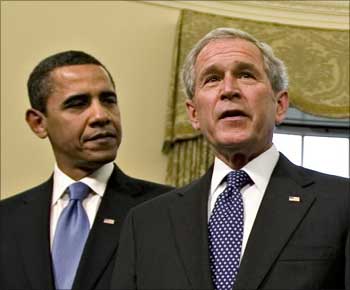
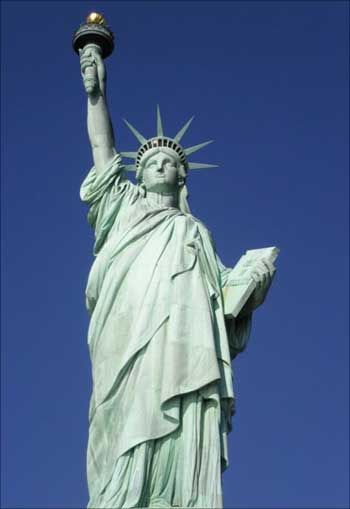
article